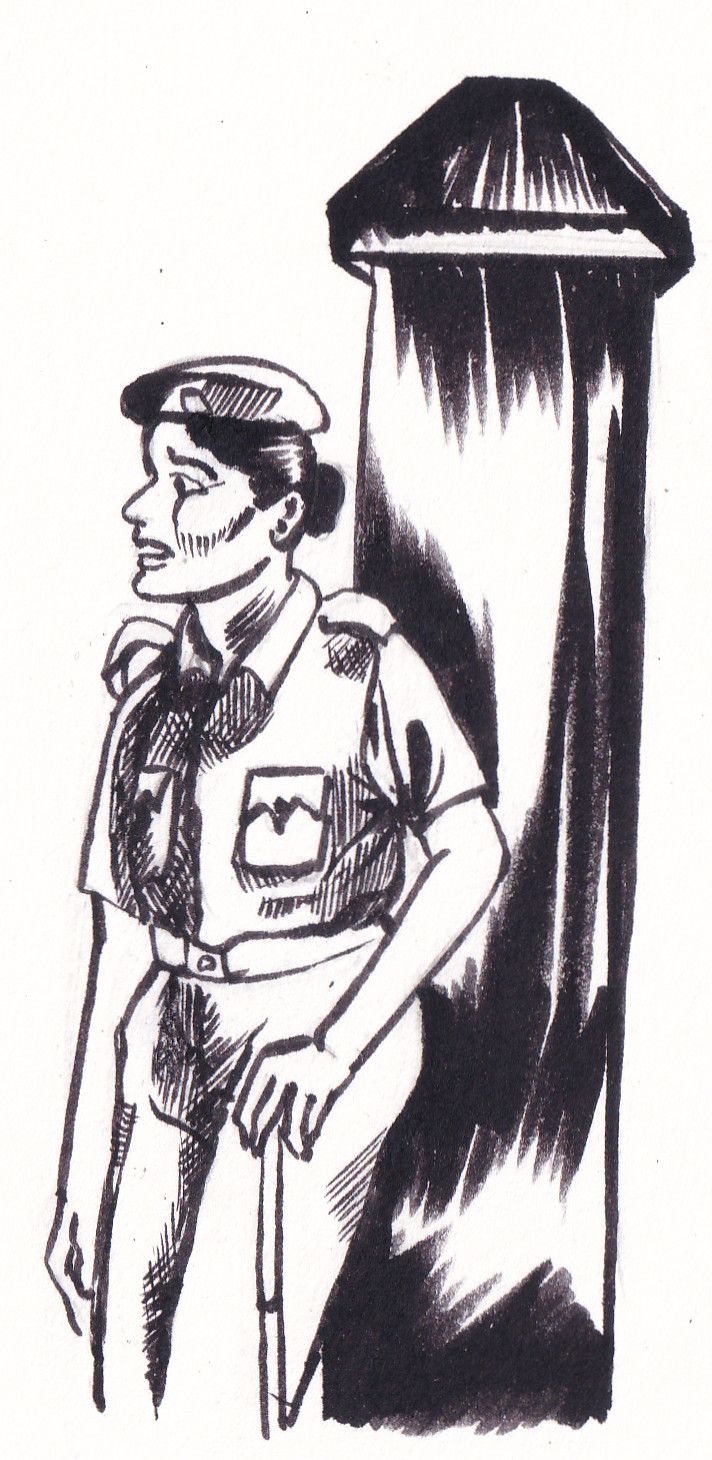Karimganj
Testimony OfAnonymous Policewoman
Geeta (name changed) is 37-years-old and has been in the local police force for over a decade. She is posted in Karimganj, outside the Foreigners’ Tribunal Office. Her duty was to maintain law and order and to be on the lookout for any rabble-rousers whose numbers, it was said, had risen steeply since the NRC updation process began.
During our visit we heard from various security personnel (several of whom were only deployed since the NRC process began) that it doesn’t take much for people to gather when there is a discussion about the NRC. People have known to become “agitated easily” and get “emotional” for the smallest of reasons and one can never know when they will become disruptive.

At the Karimganj Foreigners' Tribunal, we spoke to people who had come to seek information about when and how hearings for claims would begin so they could start filing. A small group gathered around us explaining what kind of claims they needed to file. “Without a certified copy of the rejection order, no proceedings can begin,” said Geeta, who was standing at the periphery of the circle. We thought she would ask the crowd to disperse, when she added, “I’m waiting for mine, too.”
It was mostly male members of families who made submissions to the NRC. This was clear from the start and seen across the state. Other than the regular reasons – that they were more educated, informed, had more mobility and social allowances – at the NRC Seva Kendras, the officials would much rather deal with men. The women, when accompanying them, were silent bystanders. Their relationship with the NRC at every level has been at least once removed, if not more.
Geeta was no exception. Geeta’s husband is also in the police department. They have two children. Geeta’s legacy had to be routed through her paternal home, through her father, as per the rules. For this, the electoral rolls of 1961 had to be referred to and Geeta’s father’s name cited to prove her legacy. Belonging to fairly well-off families, proving legacy was a fairly straightforward process for Geeta and her husband.
Geeta’s husband took charge and first put together his own documents and those of their children. Geeta was in Karimganj and the submissions had to be done in Silchar. While putting together documents for Geeta, he mistakenly wrote her uncle’s name instead of her father’s. She didn’t see the documents before submission so she couldn’t correct the error.
Geeta and her husband have been married for twelve years. It was an arranged marriage, decided by their parents. They belonged to the same caste and were both educated, qualified and in government jobs. Geeta’s children are very fond of her parents and visit them during their holidays every year. It is odd that her husband didn’t remember his father-in-law’s name. While she laughs it off as his absent-mindedness, it stands out as an example of how women’s paternal associations are often not important enough to be remembered.
While most official documentation involves linkages to men, when it comes to linking women even through their paternal families, patriarchy manifests itself as negligence or just plain ignorance. The result of this for Geeta was that her name was excluded from the draft NRC. The names of all the other members of her family (marital and paternal) have been included. According to an oral order, her name was not included due to wrong legacy data. She immediately filed a claim and is confident that this mistake will be rectified as soon as the Foreigners' Tribunal start their hearings.


